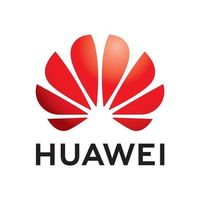China's Local Government Embraces Tesla, Microsoft Mandates iPhone Switch in China
July 9, 2024, 3:52 am
In a surprising turn of events, China's eastern Jiangsu province has announced plans to purchase an undisclosed number of Tesla Model Y electric vehicles in the upcoming budget year. This decision marks a significant shift in the government's stance towards the US automaker, as Tesla cars have been largely excluded from government-affiliated venues in China, its second-largest market, for years.
The Shanghai-made Model Y rear-wheel drive, priced at RMB 249,900 ($34,368), has been listed in a sourcing plan released by the Jiangsu Provincial Government Procurement Center. Alongside the Tesla Model Y, the Aito M7 and the Avatr 11, both featuring Huawei's assisted driving technology, are also included in the procurement plan. Additionally, several models from state-owned manufacturer SAIC and Volvo parent Geely, such as the IM L6 and the Galaxy E8, are part of the list.
The decision to include Tesla vehicles in the procurement plan comes after Tesla's locally-built cars were tested and found to be compliant with China's data security requirements. This announcement was made by the China Association of Automobile Manufacturers (CAAM) on April 28, coinciding with the visit of Tesla's chief executive, Elon Musk, to Beijing.
However, it's worth noting that some Chinese government office workers have faced restrictions on parking their Tesla vehicles inside government compounds, particularly those located near military bases. This restriction stems from security concerns over the cameras installed on Tesla vehicles since 2021, as reported by Reuters.
On a separate note, Microsoft has made headlines in China by mandating its employees to switch from Android smartphones to iPhones before the start of September. This move is driven by corporate security rules that prioritize data protection and privacy. In mainland China, Google Play services are not available, and Microsoft deems mobile services from Huawei and Xiaomi as unreliable in terms of security.
As part of Microsoft's global initiative called Microsoft Secure Future, employees in China are required to use the Microsoft Authenticator password manager and Identity Pass application for secure communication channels. However, these applications may not function properly or could be compromised on smartphones without access to Google Play services.
To facilitate the transition, Microsoft will provide iPhone 15 devices to employees currently using Android devices, including smartphones from Huawei and Xiaomi. The new smartphones can be obtained at distribution points across China, including Hong Kong, where Google services are accessible.
This initiative by Microsoft will impact several hundred employees in China, where the tech giant generates only 1.5% of its global revenue. Despite reducing its developer workforce in the country, Microsoft has no plans to withdraw its business operations in China.
In a related move, Microsoft had previously asked around 700 to 800 employees based in China, working in cloud computing and AI, to consider relocating outside the country. Engineers and programmers, many of whom are Chinese citizens, were offered urgent relocation options to the US, Ireland, Australia, or New Zealand.
These recent developments highlight the evolving landscape of technology and data security in China, with both government entities and multinational corporations taking proactive steps to safeguard sensitive information and ensure compliance with regulatory requirements.
The Shanghai-made Model Y rear-wheel drive, priced at RMB 249,900 ($34,368), has been listed in a sourcing plan released by the Jiangsu Provincial Government Procurement Center. Alongside the Tesla Model Y, the Aito M7 and the Avatr 11, both featuring Huawei's assisted driving technology, are also included in the procurement plan. Additionally, several models from state-owned manufacturer SAIC and Volvo parent Geely, such as the IM L6 and the Galaxy E8, are part of the list.
The decision to include Tesla vehicles in the procurement plan comes after Tesla's locally-built cars were tested and found to be compliant with China's data security requirements. This announcement was made by the China Association of Automobile Manufacturers (CAAM) on April 28, coinciding with the visit of Tesla's chief executive, Elon Musk, to Beijing.
However, it's worth noting that some Chinese government office workers have faced restrictions on parking their Tesla vehicles inside government compounds, particularly those located near military bases. This restriction stems from security concerns over the cameras installed on Tesla vehicles since 2021, as reported by Reuters.
On a separate note, Microsoft has made headlines in China by mandating its employees to switch from Android smartphones to iPhones before the start of September. This move is driven by corporate security rules that prioritize data protection and privacy. In mainland China, Google Play services are not available, and Microsoft deems mobile services from Huawei and Xiaomi as unreliable in terms of security.
As part of Microsoft's global initiative called Microsoft Secure Future, employees in China are required to use the Microsoft Authenticator password manager and Identity Pass application for secure communication channels. However, these applications may not function properly or could be compromised on smartphones without access to Google Play services.
To facilitate the transition, Microsoft will provide iPhone 15 devices to employees currently using Android devices, including smartphones from Huawei and Xiaomi. The new smartphones can be obtained at distribution points across China, including Hong Kong, where Google services are accessible.
This initiative by Microsoft will impact several hundred employees in China, where the tech giant generates only 1.5% of its global revenue. Despite reducing its developer workforce in the country, Microsoft has no plans to withdraw its business operations in China.
In a related move, Microsoft had previously asked around 700 to 800 employees based in China, working in cloud computing and AI, to consider relocating outside the country. Engineers and programmers, many of whom are Chinese citizens, were offered urgent relocation options to the US, Ireland, Australia, or New Zealand.
These recent developments highlight the evolving landscape of technology and data security in China, with both government entities and multinational corporations taking proactive steps to safeguard sensitive information and ensure compliance with regulatory requirements.
